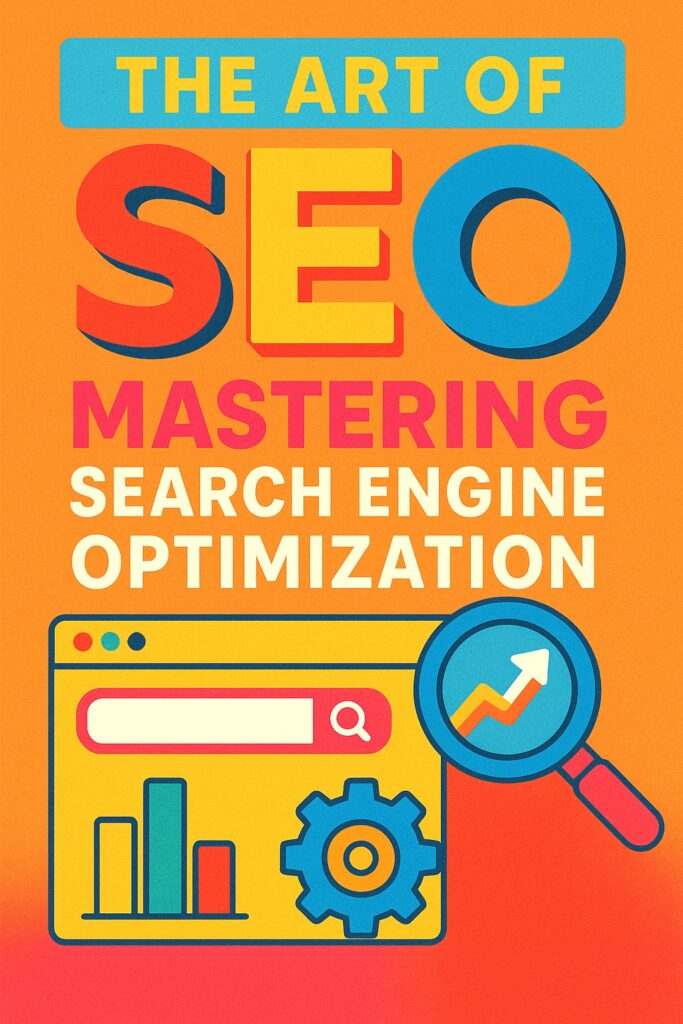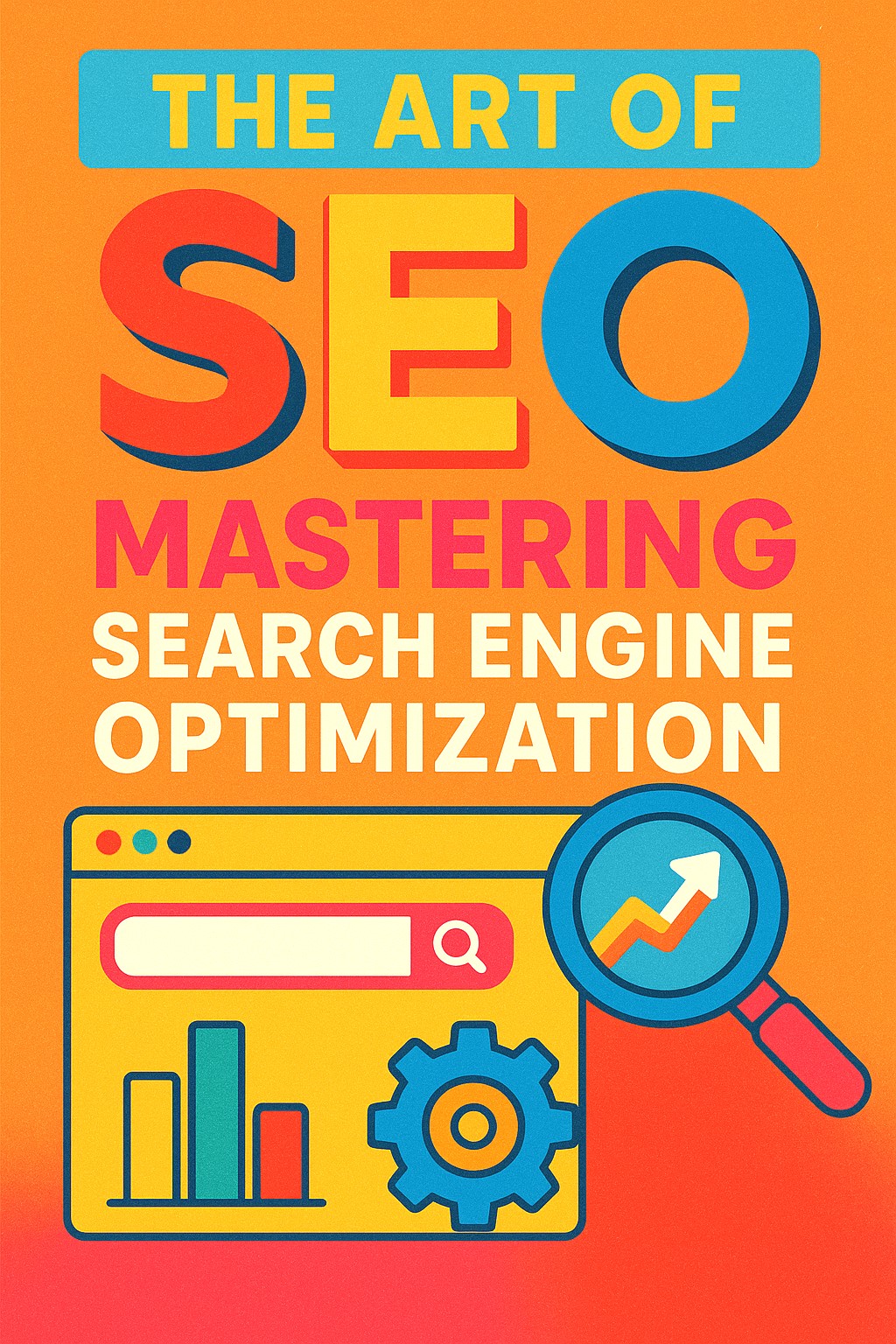The Art Of SEO Mastering Search Engine Optimization

In today’s competitive digital landscape, understanding the art of SEO is more crucial than ever. Businesses, bloggers, and entrepreneurs who master SEO gain the power to reach wider audiences, boost their visibility, and achieve sustainable online success. Let’s dive deep into The Art Of SEO Mastering Search Engine Optimization and uncover the key elements that drive real results.
What Is SEO and Why Is It Important?
SEO, or Search Engine Optimization, is the strategic process of optimizing a website to rank higher on search engines like Google. By improving factors such as content quality, site structure, keyword usage, and backlinks, websites can attract more organic (unpaid) traffic.
Without SEO, even the best content can go unnoticed. Studies show that over 90% of online experiences begin with a search engine, and websites listed on the first page of Google capture nearly 95% of web traffic. This demonstrates that mastering SEO is not just beneficial—it’s essential.
The Core Components of Mastering SEO
Mastering SEO requires a holistic approach that involves several key elements working together harmoniously. Here’s a closer look:
1. Keyword Research and Optimization
At the heart of SEO lies keyword research. Identifying what your audience is searching for allows you to create content that meets their needs.
-
Use tools like Google Keyword Planner, Ahrefs, or Ubersuggest to find relevant keywords.
-
Focus on a combination of short-tail (e.g., “SEO tips”) and long-tail keywords (e.g., “how to optimize website for Google SEO”).
-
Naturally integrate keywords into your titles, headers, meta descriptions, and throughout your content without keyword stuffing.
Proper keyword usage signals to search engines that your content is relevant and valuable.
2. High-Quality Content Creation
Content is still king. High-quality, informative, and engaging content builds trust with readers and signals authority to search engines.
-
Write in-depth articles that fully answer the user’s query.
-
Use small paragraphs, bullet points, and visual elements to make your content easier to read.
-
Regularly update your content to keep it fresh and relevant.
Google’s Helpful Content Update emphasizes the importance of content written for people, not just algorithms. Writing genuinely valuable content is a major part of mastering SEO.
3. On-Page SEO Best Practices
On-page SEO refers to optimizing individual web pages to rank higher and earn more relevant traffic.
Key on-page SEO elements include:
-
Proper use of H1, H2, and H3 headings to structure your content.
-
Including keywords in your title tags and meta descriptions.
-
Optimizing images with alt text and proper file names.
-
Creating SEO-friendly URLs (short, descriptive, and keyword-rich).
A well-structured page enhances both user experience and search engine understanding.
4. Building a Strong Backlink Profile
Backlinks—links from other reputable websites to yours—are one of the strongest ranking signals in Google’s algorithm.
-
Aim for high-authority backlinks from respected websites in your industry.
-
Guest posting, digital PR, and content partnerships are effective ways to build backlinks.
-
Focus on earning natural backlinks by creating highly shareable and useful content.
Backlinks not only drive direct traffic but also improve your site’s credibility and authority.
5. Technical SEO and Site Performance
Technical SEO ensures that search engines can crawl, interpret, and index your website properly.
Important technical SEO elements include:
-
Ensuring your website loads quickly (ideal load time: under 3 seconds).
-
Having a mobile-friendly, responsive design.
-
Using HTTPS for a secure connection.
-
Creating and submitting an XML sitemap.
-
Fixing broken links and errors.
A technically sound website provides a better user experience and improves your SEO rankings.
Strategies for Long-Term SEO Success
SEO is not a one-time effort—it’s a continuous process. Mastering the art of SEO means adopting sustainable strategies for long-term success.
1. Monitor and Analyze Your SEO Performance
Use tools like Google Analytics and Google Search Console to track your traffic, rankings, and conversions.
-
Identify which pages perform well and why.
-
Detect areas that need improvement.
-
Continuously refine your strategies based on data insights.
Data-driven decision-making separates good SEO from great SEO.
2. Adapt to Algorithm Updates
Google regularly updates its search algorithms to provide better results for users. Staying updated with these changes is crucial.
-
Follow reputable SEO blogs and communities.
-
Be ready to tweak your strategies based on changes like the Core Web Vitals update or the Helpful Content Update.
-
Focus on user-first content, as this remains a constant priority for Google.
Adaptability is key to maintaining strong SEO performance over time.
3. Build Brand Authority and Trust
In SEO today, brand authority plays a significant role. Google favors websites that users trust.
-
Position yourself or your business as a thought leader in your niche.
-
Get mentioned in reputable publications.
-
Foster a strong presence across multiple channels, including social media and forums.
Building authority not only helps your SEO but also strengthens your entire brand presence.
Common Mistakes to Avoid in SEO
While mastering SEO, it’s important to avoid common pitfalls that could harm your rankings:
-
Keyword stuffing: Overloading your content with keywords hurts readability and SEO.
-
Ignoring mobile users: More than 60% of searches come from mobile devices. A non-responsive site drives users away.
-
Neglecting user experience: Poor navigation, slow loading times, and confusing layouts push visitors to leave your site.
-
Buying backlinks: Purchasing links can lead to Google penalties. Focus on organic link building instead.
Avoiding these mistakes will protect your site’s SEO health in the long run.
Final Thoughts: The Art Of SEO Mastering Search Engine Optimization
Mastering SEO is both an art and a science. It requires technical skills, strategic thinking, creativity, and an ongoing commitment to excellence. When done correctly, SEO transforms websites into powerful magnets for organic traffic, brand trust, and business growth.
By focusing on quality content, smart keyword strategies, technical performance, and authentic authority building, you can truly master the art of SEO. Stay updated, stay adaptable, and always put your audience first—and you’ll see lasting success.
If you’re serious about growing your online presence, remember: mastering SEO is not optional—it’s the foundation of your digital future.
Key Takeaways
-
SEO is Essential for Online Success:
Mastering SEO is crucial for increasing website visibility, driving organic traffic, and building a strong online presence. -
Keyword Research is the Foundation:
Effective SEO starts with finding and targeting the right keywords that match user search intent without overstuffing them into the content. -
High-Quality Content Wins:
Creating valuable, informative, and engaging content that genuinely helps readers is key to gaining trust and improving search rankings. -
On-Page SEO Matters:
Proper use of headings, meta tags, optimized images, and SEO-friendly URLs enhance both user experience and search engine understanding. -
Backlinks Build Authority:
Earning backlinks from reputable websites boosts credibility and significantly impacts search rankings. -
Technical SEO Cannot Be Ignored:
A fast, mobile-friendly, secure, and error-free website ensures that search engines can properly crawl and index your content. -
SEO is a Continuous Process:
Monitoring analytics, adapting to algorithm updates, and refining strategies regularly are vital for maintaining and improving SEO performance. -
User Experience is Central:
Google prioritizes websites that offer excellent user experiences, including fast loading times, easy navigation, and helpful content. -
Building Brand Authority is Important:
Establishing your brand as a trusted source improves SEO rankings and builds long-term loyalty among users. -
Avoid SEO Mistakes:
Keyword stuffing, buying backlinks, neglecting mobile optimization, and poor user experience can all harm your SEO efforts.
References
https://en.wikipedia.org/wiki/Search_engine_optimization
Links License – https://en.wikipedia.org/wiki/Wikipedia:Text_of_the_Creative_Commons_Attribution-ShareAlike_4.0_International_License
Dear Friends, warmly welcome You to visit link below for recommended tech products.
https://techsavvo/com/category/tech-products/


